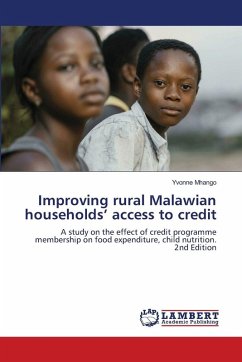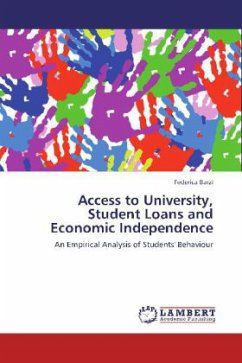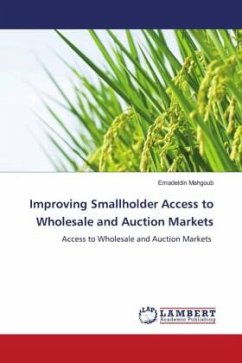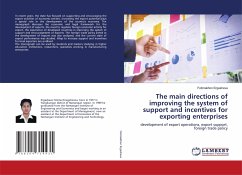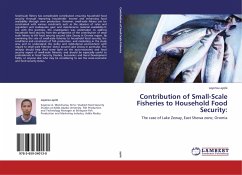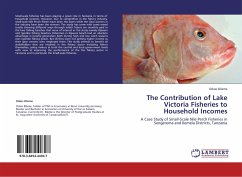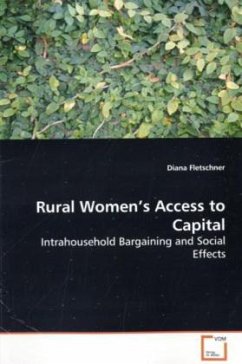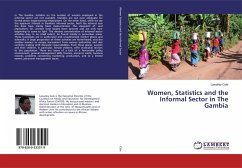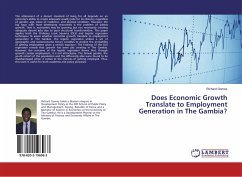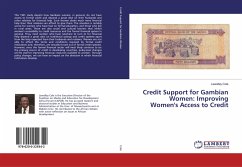
Credit Support for Gambian Women: Improving Women's Access to Credit
Versandkostenfrei!
Versandfertig in 6-10 Tagen
62,99 €
inkl. MwSt.

PAYBACK Punkte
31 °P sammeln!
This 1991 study depicts how Gambian women, in general, do not have access to formal credit and depend a great deal on their husbands and other relatives for financial help. Such women desire much more financial help than their relatives can afford to give them. The situation is notably worse for women who have had no formal education, and those who live in rural areas. There are also social and cultural barriers that inhibit women's accessibility to credit resources and the formal financial system in general. Thus, most women who have nowhere to turn to for financial help depend a great deal o...
This 1991 study depicts how Gambian women, in general, do not have access to formal credit and depend a great deal on their husbands and other relatives for financial help. Such women desire much more financial help than their relatives can afford to give them. The situation is notably worse for women who have had no formal education, and those who live in rural areas. There are also social and cultural barriers that inhibit women's accessibility to credit resources and the formal financial system in general. Thus, most women who have nowhere to turn to for financial help depend a great deal on traditional savings and credit systems apart from the help expected from their husbands and relatives. Women are not able to afford the terms and conditions required by formal credit institutions and, therefore, are virtually forced out of formal credit systems. However, since the formal financial sector will most likely continue to be the primary source of credit in developing countries, policy-level changes will be vital for improving financial resources available to women. Through policy changes, we can have an impact on the direction in which financial institutions develop.



